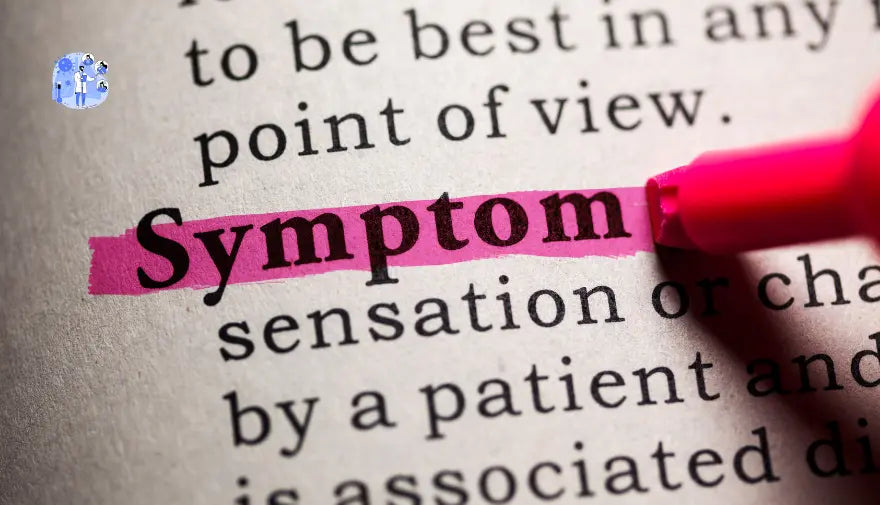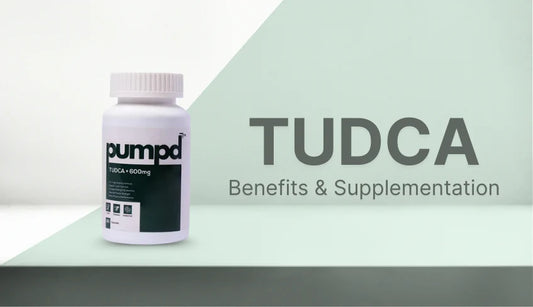
Common Symptoms of Nutrient Deficiencies You Shouldn't Ignore
Not all health problems start with a diagnosis. Sometimes, they begin with something simple—like nails that chip too easily, a sluggish afternoon despite eight hours of sleep, or a general sense that something's just off. You might chalk it up to stress or ageing. But more often than not, these quiet clues are your body's way of asking for help.
At Pumpd, we believe your wellness journey starts with awareness. That’s why we create result-driven, clinically-tested health supplements to support your energy, focus, recovery, and everyday health.
This guide will help you identify the common signs of nutrient and vitamin deficiencies and what to do if your diet is falling short.
Some Subtle (but Telling) Physical Signs
Your body is always communicating, as the saying goes, 'our body never lies.' Oftentimes, physical symptoms are the first place where deficiencies will show up. Consider the following signs:
1. Brittle Hair and Nails
If your hair is very brittle, breaks easily, and your nails are always chipping away even when you file them nicely, you could be low in biotin (vitamin B7). Not only is biotin vital to obtain energy from food, but it also helps keep your hair and nails strong as well.
2. Muscle Cramps and Weakness
Do you often get out of bed in the morning with random leg cramps, twitches or other muscle spasms? You may be lacking magnesium, potassium or calcium - these are all activators and minerals that help contract and relax muscle fibres.
The role of these minerals:
-
Magnesium helps modulate and regulate electrical activity to relay signals to muscles and nerves.
-
Potassium is utilised during contractile activity and cardiac contractions (both muscle and heart.
-
Calcium is a vital mineral utilised not only for muscle contraction, but bone formation and function.
3. Fatigue That Won’t Go Away
Feeling wiped out all the time? One of the most common nutrient deficiency symptoms is fatigue. It could be due to:
-
Iron deficiency, which leads to anaemia.
-
Vitamin B12 deficiency, especially if you also have numbness or tingling in your hands and feet.
-
Magnesium deficiency impacts energy production.
4. Slow Wound Healing
If even minor cuts take you forever to heal, low zinc might be to blame. Zinc is critical for tissue repair and immune function.
5. Bone and Joint Discomfort
Persistent bone aches or weak bones can signal a lack of vitamin D or calcium. Without these nutrients, bones don’t maintain their strength and can become brittle.
6. Hair Loss
Losing more strands than usual? It could be due to low levels of iron, zinc, protein, or omega-3 fatty acids.
7. Night Blindness or Dry Eyes
Struggling to see in low light or experiencing unusually dry eyes? These are classic signs of vitamin A deficiency.
8. Teeth Grinding at Night
You might not notice this one, but your partner might! Nighttime teeth grinding can be linked to magnesium deficiency or calcium imbalance.

When It Affects More Than Your Body
Nutrient deficiencies can create issues beyond sore muscles or dry skin – they can play with your mind, too:
1. Brain Fog and Difficulty Concentrating
If you are taking longer to think and your ability to concentrate has diminished, there may be a lack of omega-3 fatty acids, iron, or vitamin B12. These nutrients are key components of brain health.
2. Anxiety or Changes in Mood
Do you notice feeling more down than ever? Low vitamin D has also been associated with depression, anxiety, and fatigue.
3. Unintentional weight loss
Yes, unintentional weight loss can be fabulous. However, unintentional weight loss is also a red flag that you may not be taking in enough calories, protein or micronutrients to properly fuel your body.
4. Skin issues and canker sores in the mouth
Symptoms such as dry, pale skin or recurrent mouth cankers can signal a vitamin C or B complex deficiency.
Common Nutrient Deficiencies and Signs
Well, here are some basic signs of some of the more common vitamin and mineral deficiencies:
- Vitamin B12 Deficiency: Fatigue, memory, numbness.
- Magnesium deficiency: Cramps, mood problems, sleep problems.
- Iron deficiency: Tired, pale skin, shortness of breath.
- Vitamin D deficiency: Bone pain, low mood, poor immunity.
- Vitamin A deficiency: Night blindness, dry skin, prone to infections.
- Zinc deficiency: Delayed healing, loss of hair, skin issues.
Supplements That Can Help Fill the Gaps in Nutrition
You may be mending your health with the best available food options, but food isn't always enough, and sometimes the reasons are digestion and absorption issues, limited food options, or increased nutritional demands. That's when you need supplements that can fill the gaps in your nutrition. What’s more, you can easily buy supplements online to fill your nutritional needs.
Multivitamins: Your Safety Net
Multivitamins can be an easy way to cover your bases. A multivitamin can provide a myriad of nutrients to assist your:
- Immune strength
- Skin, hair, and nail health
- Energy levels and metabolism
But remember: just because something is good doesn't mean more is better. Don't mistake them for real food - it's called a "supplement" for a reason.
Vitamin D3 + K2
A Power Couple Vitamin D3 helps the body absorb calcium, while vitamin K2 makes sure the calcium ends up in the right places (bones and teeth) rather than blocking arteries. If you typically spend your time indoors or live in regions with less sun, then this combo can be especially important.
Benefits:
- Strengthens bones
- Supports heart health
- Reduces the risk of osteoporosis
Vitamin B Complex: The Energy Booster
If you're feeling drained, irritable, or struggling with concentration, you might benefit from a vitamin B complex. These include B1 through B12, each playing a role in energy production, nerve health, and metabolism.
Top Benefits:
- Improves mental clarity.
- Supports red blood cell production.
- Aids in nerve function.
Magnesium Lotion: Easy Absorption, Relaxing Relief
Some people don’t absorb magnesium well through food or oral supplements. That’s where magnesium lotion comes in handy. It absorbs through the skin and may help:
- Relieve cramps
- Improve sleep
- Soothe sore muscles
- It’s particularly useful if you have digestive issues or struggle with tablet supplements.
Should You Be Worried?
If you’ve been nodding along with most of these symptoms, don’t panic. Most vitamin deficiency symptoms develop slowly and can be corrected with dietary changes or supplements. But it’s a good idea to speak to a healthcare provider before starting anything new.
Blood tests can pinpoint specific deficiencies and help you create a plan that suits your needs.
How To Eat Smarter To Avoid Deficiencies
A few tweaks to your diet can help prevent many nutrient gaps. Here are some everyday fixes:
- Iron: Add more spinach, lentils, red meat, and pumpkin seeds
- Vitamin B12: Eat eggs, dairy, fish, or consider a supplement if you’re vegan
- Magnesium: Enjoy nuts, seeds, dark chocolate, and leafy greens
- Zinc: Add beans, chickpeas, nuts, and shellfish
- Vitamin A: Include carrots, sweet potatoes, and dark leafy greens
- Vitamin D: Get 10–20 minutes of sunlight daily, and eat fatty fish, egg yolks, or fortified milk
Final Thoughts
Nutrient deficiencies are more common than we think. Recognising vitamin deficiency symptoms early—from thinning hair and low mood to fatigue and poor immunity—can make all the difference. Supplements like multivitamins, vitamin D3 + K2, vitamin B complex, and magnesium lotion can help bridge the gap when food falls short.
At Pumpd, we’re here to make that journey easier. Our online supplement store has in-house manufacturing, clinically-tested formulations, and evidence-based products that are designed to help you build balanced health, without second-guessing what your body needs.
But always listen to your body first. If something feels off, it probably is.







